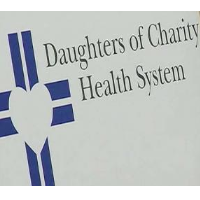Union Foe Prime Healthcare Wants to Buy Six More California Hospitals

In 2011, California Attorney General Kamala Harris rejected Prime Healthcare Services Inc.’s bid to buy the Victor Valley Community Hospital in Victorville in part because of its “disturbing business model.”
That hasn’t stopped the Southern California-based for-profit chain from operating 29 hospitals in California and eight other states and last week it made a deal to acquire six more in the state. The financially-troubled Daughters of Charity Health System, known for serving the poor and disadvantaged, agreed to sell Prime four hospitals in the Bay Area and two in Los Angeles County.
All six Catholic hospitals are considered distressed, the kind of properties that Prime specializes in buying. The six are: St. Vincent Medical Center in L.A.; St. Francis Medical Center in Lynwood; O'Connor Hospital in San Jose, Saint Louise Regional Hospital in Gilroy; Seton Medical Center in Daly City; and Seton Coastside in Moss Beach.
“These nonprofit, religious hospitals have been dedicated to the provision of care to underserved residents in the community for 150-plus years,” Santa Clara County Executive Jeff Smith told the San Jose Mercury News. “A sale to an aggressive, profit-driven health system signals the abandonment of that mission. Historically, Prime has overcharged for health care services and has minimized its care to Medi-Cal and uninsured patients.
The Service Employees International Union (SEIU) is not happy, either. “We are not going to roll over and risk watching Prime Healthcare cut services, raise prices and lay off caregivers like they've done in so many other communities in California and other states,” Dave Regan, president of SEIU-United Healthcare Workers West, said on the union’s website.
SEIU has rounded up support (pdf) from 29 state lawmakers, 14 community organizations and four county supervisors. The union has 3,700 members at the Daughters of Charity facilities and three Prime-owned hospitals in California. It is currently embroiled in a labor dispute with the company.
In announcing the deal, Prime said it had agreed to a one-year contract with the California Nurses Association and promised to keep the hospitals opened for at least five years. Prime President and CEO Prem Reddy personally guaranteed more. “I promise you that they will be staying open forever and we will not cut services.”
Reddy said there would be layoffs, but they would come from the mid-level executive ranks, not clinical positions.
Los Angeles Times columnist Michael Hiltzik described Prime last year as “one of our more voracious and troubling healthcare conglomerates.” The business model Harris referred to includes canceling all private insurance contracts, so it can charge emergency room patients “out-of-network” fees.
Terms of the deal were unknown, but Prime said it would honor the financially troubled Daughters of Charity’s $300 million in pension obligations to workers and retirees at the six hospitals.
In February 2011, the now-defunct California Watch found a startling pattern of supposed malnutrition and suspicious Medicare billing at two Prime-run hospitals in Southern California.
The Shasta Regional Medical Center in Redding reported that 16.1% of its Medicare 65 and older suffered from kwashiorkor, a Third World nutritional disorder. That’s a tad high for a First World nation and 70 times the state average. The Desert Valley Hospital in Victorville had a 9.1% rate.
A Medicare diagnosis of kwashiorkor or other forms of malnutrition can be worth thousands of dollars to a hospital for the treatment required. California Watch said it found that Prime reported 25% of patients at its hospitals were malnourished in 2009. Overall, 10.1% of Prime Medicare patients were diagnosed with the worst kinds of malnutrition that generate the big federal pay days, compared to 1.3% statewide.
After the California Watch exposé was published, Prime circulated a rebuttal that included personal patient information of one 64-year-old diabetes patient. That was illegal, and the California Department of Public Health fined Prime $95,000. The chain was accused of violating federal patient privacy laws for the same incident and settled the case for $275,000 in June 2013.
Prime is currently being investigated for overbilling Medicare and Medi-Cal.
Attorney General Harris has the authority to reject the sale, but was thwarted in 2011 after she deep-sixed Prime’s purchase of the Victor Valley Hospital because it was “not in the public interest.” The hospital refused to negotiate with any other suitor, declared bankruptcy and worked out a deal there to have Prime run the place.
The Attorney General’s review could take three months or more to complete.
–Ken Broder
To Learn More:
Daughters of Charity Announces Sale of O'Connor, other Hospitals to Controversial Company (by Tracy Seipel, San Jose Mercury News)
Prime to Buy Six Catholic Hospitals in California; SEIU Opposes Deal (by Chad Terhune, Los Angeles Times)
Is Prime Healthcare Settling Scores with Union? (by Michael Hiltzik, Los Angeles Times)
Prime Healthcare Settles Privacy Case (by Lance Williams, San Francisco Chronicle)
Is Prime Healthcare Starving Its Medicare Patients? (by Noel Brinkerhoff, AllGov)
Hospital Chain, Already under Scrutiny, Reports High Malnutrition Rates (by Lance Williams, Christina Jewett and Stephen K. Doig, California Watch)
- Top Stories
- Controversies
- Where is the Money Going?
- California and the Nation
- Appointments and Resignations
- Unusual News
- Latest News
- California Forbids U.S. Immigration Agents from Pretending to be Police
- California Lawmakers Urged to Strip “Self-Dealing” Tax Board of Its Duties
- Big Oil’s Grip on California
- Santa Cruz Police See Homeland Security Betrayal in Use of Gang Roundup as Cover for Immigration Raid
- Oil Companies Face Deadline to Stop Polluting California Groundwater





